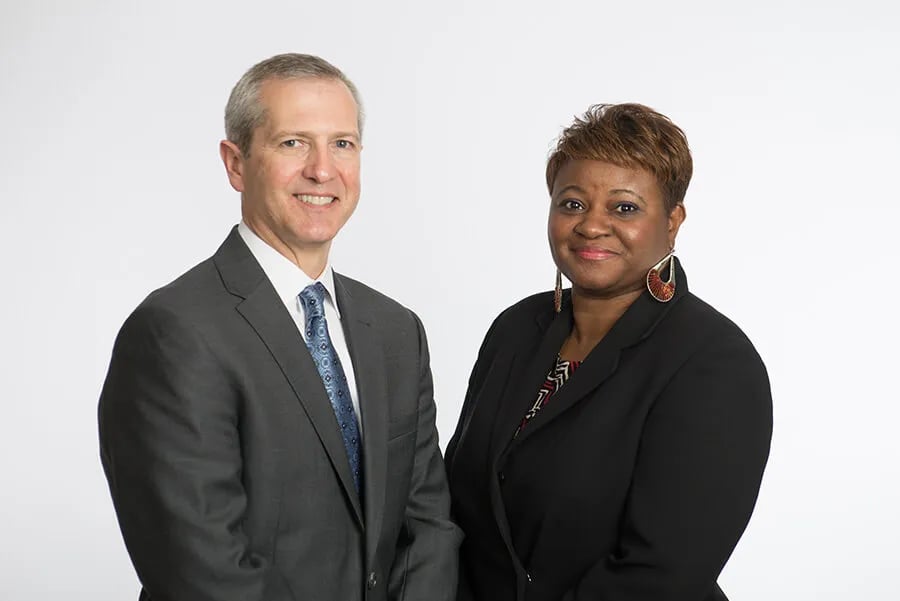Stanley Milgram’s famous experiment revealed a dark side to the human psyche. According to the study, we are likely to hurt an individual if a person of authority tells us to do so. In other words, we are very obedient creatures by nature.
If your actions hurt another person but you were simply ‘following orders’, you might wonder if you’ll get held liable. The good news is that the legal liability might rest on the shoulders of another party – the authority figure who gave you those orders.
The reason this holds true is because of the legal doctrine of vicarious liability.
In a nutshell, vicarious liability holds an authority figure legally liable for any damages caused by someone following the orders of the authority figure.
In most cases, this type of arrangement is an employer—employee relationship, but that’s not the only situation in which vicarious liability would apply.
If you’re vicariously liable for someone else, then you’re vulnerable to lawsuits. On the flip side, if you get harmed by someone who was acting on the behalf of an authority figure, then you might be able to seek out a lawsuit against that authority figure. In either case, hiring a personal injury lawyer might be necessary.
Learn everything you need to know about vicarious liability and how it applies to your situation below.
Infographic
Scroll down to our Vicarious Liability infographic:
What is Vicarious Liability?
Tort laws exist to help protect citizens against harmful and wrongful actions that aren’t against criminal law. Under these laws, the legal standard of vicarious liability is established, which is a form of strict liability. This doctrine assigns financial responsibility to authority figures despite a wrongdoing being committed by someone else acting under their authority.
Who can be held vicariously liable under the law? The most common type of vicarious liability situation happens when an employee’s wrongdoing causes an accident and another person gets injured. That injured party could seek out a claim against the employer who was the authority directing the employee’s actions.
This isn’t the only type of relationship where vicarious liability exists, though. It could also happen when a child commits a wrongful action. In these situations, the parents could get held financially responsible. Vicarious liability could also be applied in partnerships when one party acts on the behalf of fellow partners. Further, it could occur when directors or officers act on behalf of corporations or organizations.
Understanding Vicarious Liability
Every person should be held accountable for their own actions, but when you’re acting under the authority and direction of someone else, things get complicated. There are many offenses or wrongful acts that could fall under the scope of vicarious liability including:
- Negligence that leads to an accident with injuries
- Breach of copyright
- Bullying
- Improper medical care
- Bodily harm
- Harassment
- Accidents caused by children that result in injuries to another person
- Slander
- The owner of a vehicle after a car accident
- Breach of confidentiality
Each situation is unique, though, so it’s important to closely evaluate the circumstances surrounding the wrongful act, accident, injury, and situation before coming to the conclusion that it’s a situation in which vicarious liability applies.
What are the 3 Elements of Vicarious Liability?
Regardless of whether you’re considering seeking out a lawsuit or you’re an authority figure hoping to avoid these situations, you’ll want to know the elements involved in establishing vicarious liability. In general, the injured party will need to prove all three elements in order to win a case. Those elements include:
- A wrongful act was committed by an agent or employee
- The employee or agent was acting within the scope of their employment
- The employer has the ability to control the employee or agent’s actions
If an injured party can prove these elements, then the legally liable party will be financially responsible for providing reasonable compensation to the injured party. Damages could include payment for medical bills, lost wages, pain and suffering, and more.
Types of Vicarious Liability
As touched on above, vicarious liability applies to many situations. This type of strict liability arrangement comes in many forms. Here are some of the most common types of vicarious liability:
- Vicarious liability in employment
- Vicarious liability in medical care
- Principal liability
- Parental liability
Vicarious liability in medical care situations happens when a hospital or doctor gets held responsible for the actions of one of its employees. Principal liability occurs when a vehicle owner allows someone else to use their property and that other person ends up causing an accident. Parental liability occurs when the parents are held responsible for the actions of their child.
What Are Some Common Vicarious Liability Examples?
It makes sense that an authority figure would get held liable for the actions of someone acting under their authority, but how does that translate into real-world situations? There are many examples of vicious liability in real-world situations that we can pull from.
One common example is when an employer can get held responsible for the actions of an employee. For instance, let’s imagine that an employee is using heavy equipment while performing their job. Rather than doing their best work, though, the employee is negligent and ends up damaging the customer’s property. If that happens, then the employer could get held responsible for the damage caused by the accident.
One of the biggest examples of vicarious liability that got a lot of media attention was the Exxon Valdez oil spill that happened back in 1989. According to reports, the Exxon Valdez oil tanker ended up running aground and spilling approximately 11 million gallons of oil into the ocean. The crash occurred after the ship’s captain, Joseph Hazelwood, was made aware of an Iceberg in the ship’s path. The captain reportedly told employees to turn the ship before violating Exxon’s policies and leaving the area. While crew members attempted to turn the ship, it was too late. The case eventually made its way into courts, and Exxon accepted that they were vicariously liable for the actions of Hazelwood. As a result, they ended up paying over one billion dollars in fees.
Another interesting case was settled in 2022 regarding the Catholic sexual abuse scandal. While the case wasn’t settled in America, it still shows how vicarious liability operates. According to the judgment passed down by the Victorian Supreme Court, the current diocese of Ballarat was held vicariously liable for the sexual abuse of a young boy by a priest who was under that diocese’s authority.
The Supreme Court Settles the Data Breach Issue in 2020
A recent Identity Theft Resource Center report showed that data breaches increased a whopping 68% in 2021 alone. Over the past decade, more businesses are being targeted, hacked, and breached.
It’s little surprise, then, to find out that many consumers have wondered whether employers should be held liable for the fallout of these data breeches under the standard of vicarious liability. This complicated issue has been difficult to sort out, and the issue eventually reached the Supreme Court in 2020.
Initially, both a High Court and Court of Appeal ruled that employers should get held vicariously liable for the actions of rogue employees who expose customer data. The Supreme Court disagreed with both decisions, though, based on the following:
- Wrongful acts by employees or agents must be closely connected to the acts the employee was authorized to do
- The employee’s motive matters. The employee must have been acting on the employer’s behalf.
The court made this decision because employees who publish customer data online in the hopes a breach will happen or for monetary gain are not working under the scope of their employment. In these situations, vicarious liability would no longer apply.
In a nutshell, this case shows that vicarious liability must be sorted out on a case-by-case basis.
Defenses to Vicarious Liability
Are you a person or entity with some authority? Are you worried about getting held vicariously liable for the actions of someone else? Vicarious liability isn’t absolute, and there are many defense strategies you can use if you’re facing this type of situation. Here are some of the most common defenses used in these types of cases:
- Contributory or comparative negligence (another party shares liability)
- Causation (the accident wasn’t a result of the agent or employee’s negligence)
- Assumption of risk
Of course, defending yourself against vicarious liability claims won’t be easy. It might be best to consider consulting with an attorney about which defense strategy would work best in your specific situation.
Importance of Vicarious Liability
You may be wondering – why is vicarious liability important? Why do these laws exist in the first place? The main purpose of tort laws in general, and of vicarious liability laws, is to provide a system of support and recourse for individuals who got injured as a result of someone else’s wrongdoing. Without these laws, injured victims would be expected to bear the entire financial burden of wrongdoing that was not only outside of their control but caused by another person’s wrong actions.
Vicarious liability helps victims access the compensation they need to cope with medical bills, physical injuries, lost wages, property damage, emotional distress, and more.
What’s more, vicarious liability laws help hold authority figures accountable for the policies they put into place. Without these laws, authority figures could simply tell employees or agents to act in wrongful ways and then allow those individuals to take the fall.
Do I Need a Lawyer for Vicarious Liability Claims?
Whether you’re hoping to protect yourself from vicarious liability claims or you’re fighting to get your rightful compensation, it’s in your best interests to hire a good lawyer to represent you in court. While we’ve provided you with some basic knowledge on this important legal doctrine, applying it to real-world situations is often complicated.
The personal injury law firm will help you understand the circumstances surrounding your accident. They’ll help you identify potentially liable parties, and they’ll make sure that you understand your legal rights and options. Further, they’ll help you make an informed choice on either seeking out a claim or defending yourself from one.
Without a lawyer, it will be up to you to understand these complex legal terms, apply them to your specific situation, file all the right paperwork, collect evidence, and represent yourself in court.
Vicarious Liability: What You Need to Know Moving Forward
Vicarious liability is an important legal concept that holds one authority figure legally liable for the actions of a person who was following their orders. This type of situation happens more often than you’d think. An authority figure who is telling someone else what to do should be held accountable for any fallout of that person’s actions so long as they were doing what was asked of them.
An authority figure can violate vicarious liability in several ways, like not supervising an employee who is known to make dangerous mistakes.
Whether you’re a business, a parent, a teacher, or another type of authority figure, it’s important for you to understand what vicarious liability is and how it applies to your specific situation. A failure to uphold this legal duty could result in a lawsuit.
On the flip side, if you got injured by someone else’s actions and that person was simply following orders, then that person’s employer could be financially responsible via vicarious liability. It’s best to speak with a lawyer if you think you might have a lawsuit on your hands.
If you need further help understanding this concept, then it’s in your best interests to consult with an attorney about your situation. They’ll help you understand the scope of what happened, what your legal rights are, and your legal options moving forward.
Infographic




